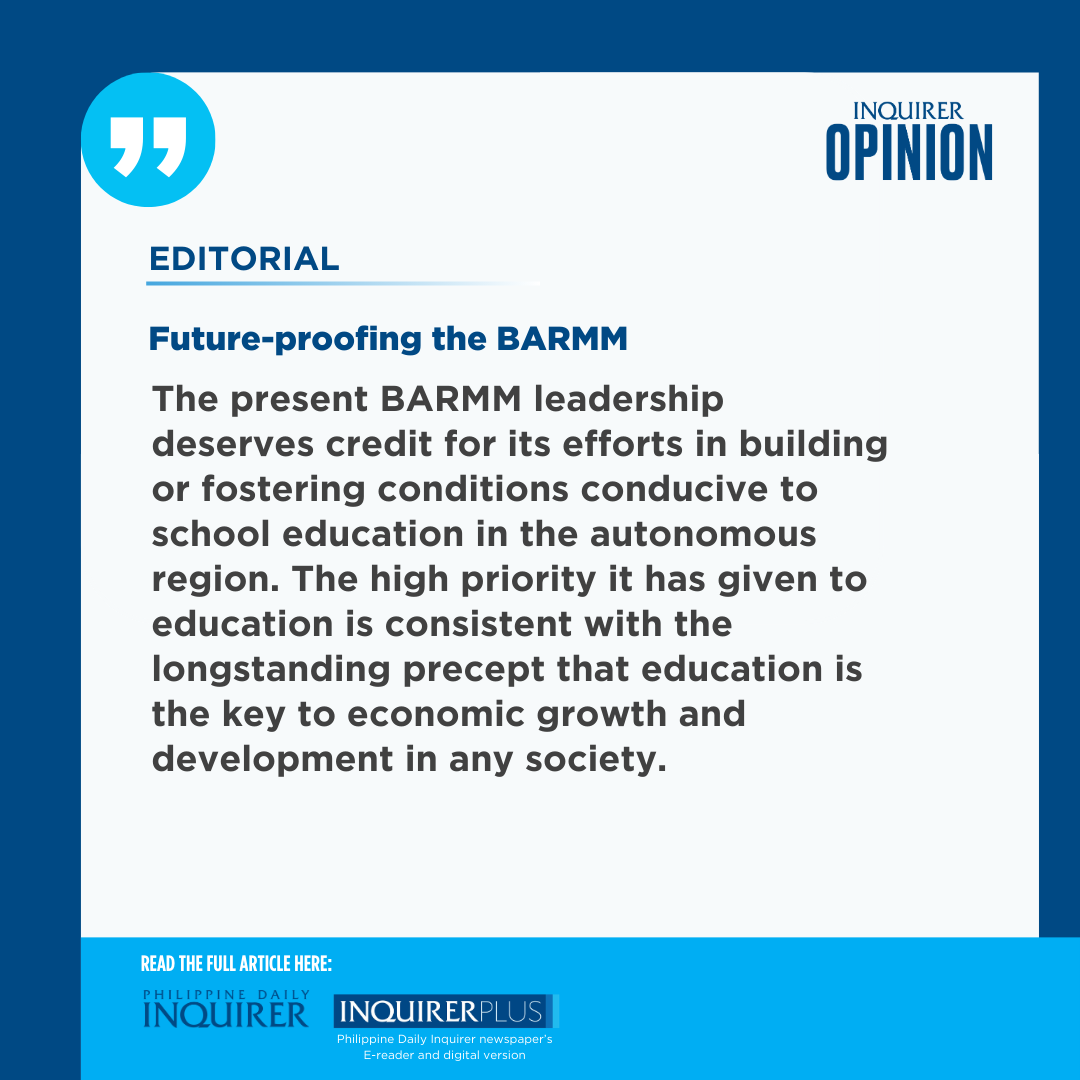Things seem to be looking up in the field of education in the Bangsamoro Autonomous Region in Muslim Mindanao (BARMM).
According to BARMM Minister of Education Mohagher Iqbal, an increase in enrollment across all levels is expected in the autonomous region’s public and private schools.
His office had anticipated that some 1,100,838 students would enroll this school year, which is 21,585 more enrollees compared to last year’s 1,079,253 students. Iqbal said the increase in enrollment reflected the growing demand for quality education in the region.
He gave credit to the trend to BARMM interim Chief Minister Ahod “Al Haj Murad” Ebrahim’s putting education in his top priority, recognizing it as a “cornerstone of growth in the region.”
In line with that program, Igbal said that about 700 new classrooms had been completed and some 500 other school buildings had undergone repairs to make them ready for the resumption of classes.
To that good news may be added the “Farm-to-School” meals program that the Embassy of Japan in the Philippines had launched in time for the opening of the new school year.
Peace and order
Backed by about $5 million funding from Japan, the program aims to provide for the next three years nutritious and diversified meals to around 10,000 students every school day so they can receive adequate nutrition that aids in their learning, growth, and achievement.
And rightly so because when the schoolchildren’s stomach is empty or their bodies do not get the kind of nutrients suitable and essential at their age level, their brain cannot be expected to absorb and comprehend the knowledge and skills they are being taught.
Those developments are significant because they indicate that peace and order has been restored in that part of Mindanao that was once wracked by bitter fighting between government military forces and Muslim Filipinos who demanded the right to self-determination in their homeland.
That conflict aggravated the already dismal economic conditions in the affected areas and added to the wide gap in living standards between Muslim and non-Muslim, or predominantly Christian, communities in the region.
Under those circumstances, and understandably so, there was no incentive for the parents of young Muslim Filipinos who reside in or near conflict zones to enroll their children in schools for fear that they could get caught in the crossfire in sporadic pitch battles between government soldiers and Muslim rebel groups.
Conducive to education
On the part of the school teachers and their pupils, class sessions were hard to conduct and the teaching process was hardly productive because of intermittent forced evacuations whenever the situation became unsafe.
From all indications, with occasional exceptions from time to time, the creation of the BARMM has been very helpful in restoring political stability in Mindanao.
The present BARMM leadership deserves credit for its efforts in building or fostering conditions conducive to school education in the autonomous region.
The high priority it has given to education is consistent with the longstanding precept that education is the key to economic growth and development in any society.
The construction by the BARMM of some 700 new classrooms and the repair of about 500 school buildings showed its commitment to make available to its constituency, in particular, those who are of school age, the benefits of good education.
In meeting that objective, the challenge to the BARMM is to be able to recruit and keep in its employ teachers who can efficiently and competently handle the task of imparting to their students the knowledge they need to be productive members of society.
Verily, continued peace and order in the region would be critical in making that task capable of accomplishment on the long term.
Poorest region
By its actions in the education field, the BARMM leadership is engaged in future-proofing, that is, taking the necessary steps to make sure that the men and women who would come after them would have the necessary skills to effectively manage the affairs of the region.
Since its organization in 2019, the BARMM has, by and large, lived up to the objectives and expectations that accompanied the enactment of the Bangsamoro organic law in 2018. Sustained peace and good leadership would be crucial in the progress of the BARMM, which according to the National Anti-Poverty Commission remains the poorest region in Mindanao with a poverty incidence rate of 16.4 percent in 2023.
As things stand at present, there is a long way to go before the region is able to reach the stage that it would not be heavily reliant on the national government for its financial sustenance.
But with the way its leadership is showing its mettle in its administration of the region, its dream of meaningful self-governance would not be far from accomplishment.
